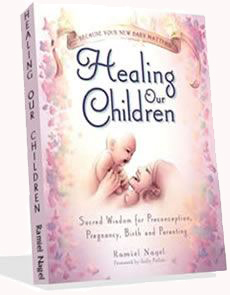The Best and Worst Dairy Products During Pregnancy

(image via UGA College of Ag on Flickr)
We all know that pregnancy is the perfect time to boost our intake of milk products. However, most pregnant women base their pregnancy dairy intake on unhealthy milk products like pasteurized milk, lowfat or skim milk, homogenized milk, powdered milk, soy milk or rice milk. Even though some of these products are advertised to us as health foods, the truth is that they are not natural or healthy for your body. Here is some information about each of these products and why you should avoid them:
Pasteurized and Homogenized Milk: The problem with these milk products is that they are overly processed. Pasteurization heats unhealthy milk that contains fecal matter, pus, and blood from unhealthy cows. The milk is already questionable because it comes from overcrowded and mistreated cows, and the pasteurization process only makes things worse because it destroys valuable nutrients, making the milk practically worthless from a nutritional perspective. The process of homogenization further damages the structure of milk, making it even more worthless for your body.
Lowfat and Skim Milk: These products aren’t as unhealthy as some other dairy options, but they are not satisfying to the body. This is because the milk fat is what makes milk a satisfying beverage. Although you can sometimes get great cheeses made from lower-fat, grassfed, organic milk, drinking it on a regular basis will deprive your body of valuable fat that you need, especially when your body is growing a new life.
Powdered Milk: By its very nature, powdered milk is less healthy for your body because it’s been exposed to high heat to take out its water content. It’s not a satisfying drink, and it’s actually full of broken proteins and rancid fat cells.
Soy Milk: While soy milk is the health drink of the hour, it’s actually not great for your body. Your body doesn’t process soy very well unless it’s fermented, which soy milk is not. Sometimes it is possible to find a very high quality fermented soy drink, but the average carton of soy milk from the grocery store is low in nutrition, hard to digest, and probably full of sugar and artificial flavoring.
Rice Milk: Rice has almost zero fat content, so in order to make rice milk even the least bit appealing to the human palate, manufacturers add piles of sugar and artificial flavorings to it. It is not a healthy drink when store bought. If you have the right juicer, you can make your own natural, unsweetened rice milk at home. This drink is a healthier choice to put into smoothies or to drink alongside your regular milk intake.
Which Milk Should You Drink?
Now that we’ve eliminated all these options from your healthy pregnancy diet, what’s left? According to the book Healing Our Children, which is packed with information on the best pregnancy diet for you and your baby, you should only drink whole, grassfed, organic milk. If at all possible, unpasteurized milk is absolutely the best option, since, contrary to popular belief, it’s actually very good for your body. Here’s why all of these descriptors are important when choosing the milk you drink throughout pregnancy and nursing:
Whole: Whole milk includes healthy milkfat, which is naturally full of fat-soluble vitamins A and D, which many pregnant women do not get enough of during pregnancy. Besides the vitamin content, the extra fat makes whole milk a satisfying and tasty drink.
Grassfed: Grassfed cattle are healthier than other cows because they are eating their natural diets. Conventionally produced milk comes from cows who are kept cooped up in cramped pens and are very unhealthy. At best, they’re eating a diet of grains, and at worst, they are eating a diet that includes bakery waste and stale candy bars. If you want to drink healthy milk, it has to come from healthy cows who are eating a diet of grass and dried hay, which is the fuel their bodies are designed to process.
Organic: Organic milk comes from cattle who aren’t treated with antibiotics or artificial growth hormones, which can get into the milk and cause problems for your body and your baby. However, it’s not enough to just drink organic milk, since it can still come from cows who live in deplorable conditions and who aren’t fed the right diet. For the best milk, opt for milk that is both organic and grassfed.
Unpasteurized: Pasteurization, contrary to popular belief, does not actually make milk healthier. In fact, certified unpasteurized milk is healthier for your body because it contains the original enzymes and healthy bacteria that make your entire digestive system healthier. Studies have shown that pasteurized milk products cause more disease than unpasteurized ones. You do need to be sure that if you are buying unpasteurized milk it has been certified for safety and health.
To find unpasteurized, grassfed, organic, whole milk in your area, check out www.realmilk.com . It is illegal in some states to sell raw milk, so depending on where you live you may have to settle for milk that is pasteurized but meets the other requirements. If this is the case, it is important to supplement your dairy intake with fermented dairy products like high-quality yogurt and kefir. Both include healthy bacteria which aid digestion in the same way that raw milk does.
Drinking and eating dairy products during pregnancy is a great way to make sure you and baby are getting enough calcium, vitamin D, and vitamin A, among other important nutrients. If you’re curious about other things that you need for the healthiest pregnancy diet, check out Healing Our Children, which is full of information on what to eat to have the healthiest possible pregnancy.








Milk is full of calcium but we dont know how how the HGH will affect the kids.